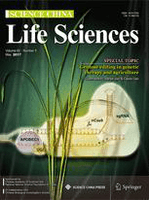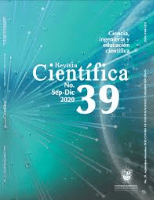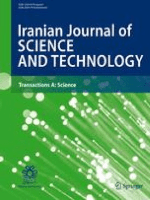
PeerJ
Scope & Guideline
Connecting scholars to the latest in scientific research.
Introduction
Aims and Scopes
- Multidisciplinary Research:
PeerJ publishes research across various disciplines, including biology, medicine, and environmental sciences, promoting interdisciplinary collaboration and knowledge sharing. - Open Access Publishing:
The journal provides open access to all published articles, allowing broader dissemination of research findings and facilitating public access to scientific knowledge. - Rigorous Peer Review:
PeerJ employs a thorough peer review process to ensure the quality and integrity of the research published, enhancing the credibility of the findings. - Focus on Methodological Rigor:
The journal emphasizes the importance of robust methodologies, encouraging authors to provide detailed descriptions of experimental designs, statistical analyses, and data interpretation. - Innovative Research Approaches:
PeerJ welcomes novel research approaches and methodologies, fostering advancements in scientific inquiry and encouraging creativity in experimental design. - Integration of Omics Technologies:
The journal highlights studies that utilize omics technologies (genomics, transcriptomics, proteomics) to explore biological questions, reflecting the trend towards high-throughput data generation in research. - Environmental and Ecological Studies:
Research related to environmental science, ecology, and conservation is a significant focus, addressing pressing global challenges such as climate change and biodiversity loss.
Trending and Emerging
- Bioinformatics and Computational Biology:
There is a growing trend towards the publication of studies that utilize bioinformatics and computational approaches to analyze biological data, reflecting the increasing importance of data science in biological research. - Microbiome Research:
Research exploring the human and environmental microbiomes is gaining traction, highlighting the role of microbial communities in health, ecology, and disease, and their implications for public health. - Environmental and Climate Change Studies:
The journal is increasingly publishing research that addresses environmental issues and the impacts of climate change, reflecting a broader societal concern for sustainability and ecological preservation. - Translational and Clinical Research:
There is a notable increase in translational research that bridges laboratory findings with clinical applications, particularly in areas related to cancer, infectious diseases, and public health. - Application of Artificial Intelligence:
Studies integrating artificial intelligence and machine learning techniques into biological research are on the rise, demonstrating the journal's embrace of innovative technologies for data analysis and prediction. - Focus on Health and Disease Mechanisms:
Research delving into the mechanisms of diseases, particularly those related to metabolic disorders and cancers, is becoming more prevalent, reflecting an interest in understanding underlying biological processes. - Plant and Agricultural Sciences:
Research on plant biology, particularly relating to crop improvement, stress responses, and sustainable agricultural practices, is increasingly prominent in the journal, aligning with global food security challenges.
Declining or Waning
- Traditional Laboratory Studies:
There is a noticeable decrease in publications focused solely on traditional laboratory-based studies without integrating fieldwork or real-world applications, as the journal increasingly favors research with broader ecological or clinical relevance. - Descriptive Studies without Novel Insights:
Research articles that provide only descriptive analyses without contributing new insights or advancements in methodologies are becoming less common, as the journal emphasizes innovative and impactful research. - Limited Focus on Localized Studies:
Studies that solely focus on localized ecosystems or populations without addressing broader implications or contexts are less frequently published, indicating a shift towards more globally relevant research. - Reduction in Non-Quantitative Research:
There has been a decline in qualitative research or studies lacking quantitative measures, as the journal continues to prioritize data-driven approaches that provide measurable outcomes.
Similar Journals

Science China-Life Sciences
Unlocking the secrets of life sciences for a sustainable future.Science China-Life Sciences, published by SCIENCE PRESS, is a premier academic journal that stands at the forefront of innovative research and discoveries in the fields of life sciences, spanning crucial areas such as agricultural and biological sciences, biochemistry, genetics, molecular biology, and environmental science. With an impressive Q1 ranking in its respective categories—ranked #5 in Agricultural and Biological Sciences, #7 in Environmental Science, and #17 in Biochemistry, Genetics and Molecular Biology—this journal is recognized for its rigorous peer-review process and significant impact within the scientific community, as reflected in its high percentiles (97th and 92nd). Maintained as an Open Access publication, it ensures broad dissemination and accessibility of research findings, fostering collaboration and knowledge sharing among researchers, professionals, and students alike. Given its position in the research landscape and its commitment to high-quality scholarship, Science China-Life Sciences plays a vital role in advancing life sciences research, supporting scientists in addressing global challenges through innovative biological solutions.

Revista Cientifica
Advancing interdisciplinary dialogue for a brighter scientific future.Revista Cientifica, published by UNIV DISTRITAL FRANCISCO JOSE DE CALDAS, CENTRO INVEST & DESARROLLO CIENT, is a premier academic journal that has been contributing significantly to the field of interdisciplinary research since its inception in 1999. With both ISSN 0124-2253 and E-ISSN 2344-8350, this open access journal is dedicated to disseminating high-quality research articles, reviews, and innovative insights across various scientific domains, making its contributions readily accessible to a global audience. Hosted in Bogotá, Colombia, the journal aims to support researchers, professionals, and students by providing a platform that fosters scientific dialogue and collaboration. Although specific metrics such as HIndex and Scopus rankings are not available, the journal's commitment to open access and scholarly excellence ensures that it plays a crucial role in advancing knowledge and best practices within the scientific community.

Analytical Science and Technology
Innovating methodologies for a brighter scientific future.Analytical Science and Technology is a prominent journal dedicated to advancing the fields of analytical chemistry and technology, published by the Korean Society for Analytical Science. Based in South Korea, this journal serves as a vital platform for researchers, professionals, and students committed to exploring innovative analytical techniques and methodologies. Although it is classified under Q4 in various subject categories, including Agronomy and Crop Science, Environmental Chemistry, and Pharmacology, the journal aims to provide critical insights and contributions to the scientific community. With ISSN 1225-0163 and E-ISSN 2288-8985, it spans a converged timeline from 2019 to 2024. Despite its current standings in Scopus rankings, the journal is dedicated to improving its visibility and impact through rigorous peer review and high-quality publications, fostering knowledge sharing within its diverse academic fields. Researchers looking for a reliable outlet for their findings are encouraged to consider this journal as it continues to strive for excellence in analytical science.

eLife
Connecting Ideas, Cultivating CollaborationeLife is a premier open-access journal that stands at the forefront of biological and medical research, published by eLIFE SCIENCES PUBL LTD in the United Kingdom. Since its inception in 2012, the journal has made significant strides in disseminating high-quality research across various key disciplines, including Biochemistry, Genetics and Molecular Biology, Immunology and Microbiology, and Neuroscience, maintaining a prestigious Q1 quartile ranking in all these fields as of 2023. With an impressive Scopus ranking placing it among the top-tier journals—12th in General Neuroscience, 24th in General Biochemistry, and 8th in General Immunology—eLife is recognized for its impact and influence in shaping research narratives. As an open-access journal, eLife facilitates global access to groundbreaking scientific discoveries, fostering collaboration and innovation among researchers, professionals, and students alike. With a commitment to rigorous peer review and publication excellence, eLife is not just a journal; it is a vital platform contributing to the advancement of life sciences.

Scientific Reports
Advancing Knowledge, One Report at a Time.Scientific Reports, published by the esteemed NATURE PORTFOLIO, is a prominent multidisciplinary journal that has been making significant strides in scientific communication since its inception in 2011. With an impressive impact factor and ranked in the Q1 category of multidisciplinary journals, it holds a respected position, placing it at #14 out of 171 according to Scopus rankings, reflecting its high citation rates and robust academic contributions in the 92nd percentile. The journal operates under an Open Access model, enabling broad dissemination of research findings and advancing scientific knowledge globally. Based in the United Kingdom, with offices in Germany, Scientific Reports is committed to publishing high-quality, peer-reviewed research across diverse fields, catering to the needs of researchers, professionals, and students alike, fostering collaboration and innovation in the scientific community.

Scientific Data
Elevating Scientific Inquiry Through Accessible DataScientific Data, published by NATURE PORTFOLIO, is a premier open-access journal that has been providing researchers with a platform to share high-quality data across various interdisciplinary fields since 2014. With its E-ISSN 2052-4463, the journal has established itself in the United Kingdom and gained global recognition. As of 2023, it has achieved remarkable quartile rankings, being placed in Q1 across several categories including Computer Science Applications, Education, Information Systems, Library and Information Sciences, and Statistics and Probability. These rankings highlight its pivotal role in advancing data sharing and methodologies, which are critical to fostering innovation and collaboration in research. The journal’s strong Scopus rankings, with top positions in Mathematics, Decision Sciences, and Social Sciences reinforce its importance as a key resource for academics, professionals, and students seeking to utilize and contribute to the rich ecosystem of scientific data. With open access options, Scientific Data empowers a diverse audience to engage with the latest research findings and datasets, ensuring that invaluable insights are accessible to all.

Iranian Journal of Science and Technology Transaction A-Science
Elevating Scientific Discourse Worldwide.Iranian Journal of Science and Technology Transaction A-Science, published by SPRINGER INT PUBL AG in Switzerland, stands as a significant platform for the dissemination of innovative research across a multitude of disciplines, including Agricultural and Biological Sciences, Chemistry, Earth and Planetary Sciences, Engineering, Mathematics, and Physics and Astronomy. With an established HIndex and a solid ranking in Scopus—featuring impressively in the 90th percentile for General Mathematics and maintaining strong positions in other scientific categories—the journal promotes high-caliber scholarly work that influences both academic and professional communities. This journal operates under an Open Access model, thus maximizing the accessibility of research findings while fostering international collaboration and knowledge exchange. Aiming to bridge gaps in science and technology, the journal invites researchers, professionals, and students alike to contribute to its dynamic and evolving discourse, thus enhancing the rigor and richness of scientific exploration.

Science Diliman
Elevating Academic Standards, Inspiring IdeasScience Diliman is a distinguished open access academic journal published by the University of the Philippines Diliman, focusing on a wide array of scientific disciplines, including natural sciences, social sciences, and engineering. Established in 1980, this journal has embraced the principles of open access publishing, providing researchers and the academic community with free and unrestricted access to its high-quality articles. With a commitment to advancing knowledge and fostering intellectual discourse, Science Diliman serves as a vital platform for researchers, professionals, and students alike, facilitating the exchange of innovative ideas and groundbreaking research findings. By maintaining high editorial standards and engaging with contemporary issues, this journal plays an essential role in shaping the scientific landscape in the Philippines and beyond. For more information, visit the journal's website to explore its latest publications and contributions to the scientific community.

Cimexus
Connecting Scholars to the Rich Tapestry of HistoryCimexus is a distinguished academic journal published by the Instituto de Investigaciones Históricas at Universidad Michoacana de San Nicolás de Hidalgo, focusing on the rich field of historical and cultural studies. With the ISSN 1870-6479 and E-ISSN 2007-9206, Cimexus has been an Open Access publication since 2006, promoting unrestricted dissemination of research to enhance collaboration and innovation. Situated in Morelia, Michoacán, Mexico, this journal serves as a vital platform for scholars and researchers dedicated to exploring the complexities of history and culture, thereby making significant contributions to the academic community. Through rigorous peer review and a commitment to high-quality research, Cimexus seeks to foster impactful discourse and provide visibility to pioneering studies in historical inquiry, encouraging engagement among professionals, researchers, and students alike.

JMIR Research Protocols
Advancing research methodologies for a transparent future.JMIR Research Protocols, published by JMIR PUBLICATIONS, INC, is a leading open-access journal that has been at the forefront of advancing research methodologies since its inception in 2012. With its ISSN 1929-0748, this journal is dedicated to providing a platform for the publication of innovative study protocols in the field of medicine, ensuring rigorous peer review and promoting transparency in research practices. Based in Canada, the journal has steadily gained recognition, currently holding a prominent position in the Q3 category of Medicine (Miscellaneous), with an impressive Scopus rank of #211 out of 636, placing it in the 66th percentile of its field. Researchers and professionals will find that JMIR Research Protocols not only supports the open sharing of knowledge but also enhances collaboration among the scientific community. Its open-access policy ensures broader dissemination of research findings, making it an essential resource for anyone interested in the evolving landscape of medical research methodologies.